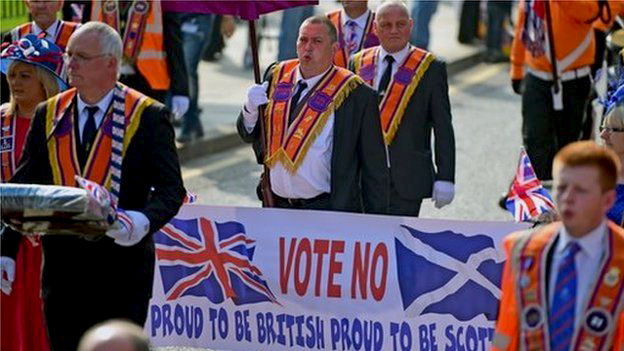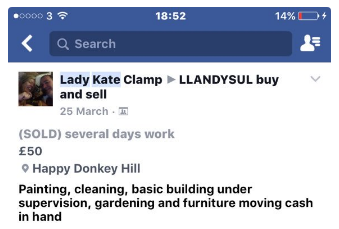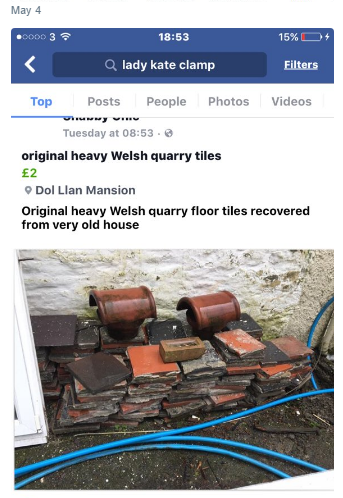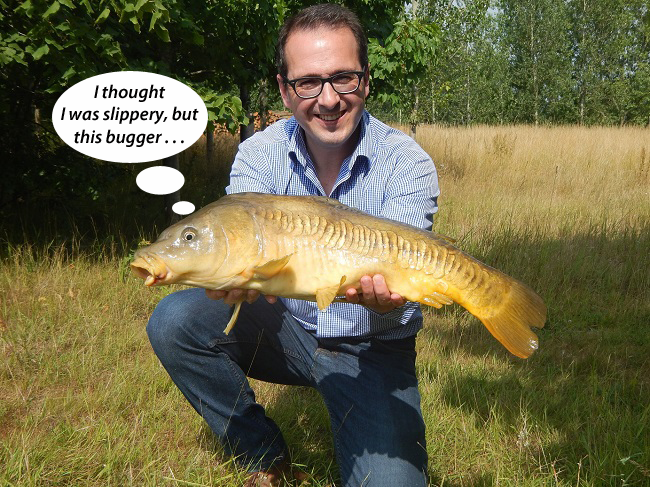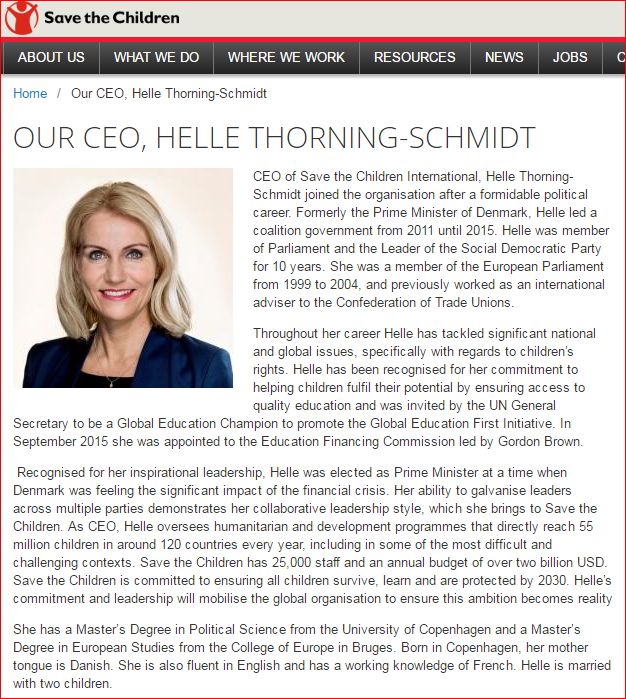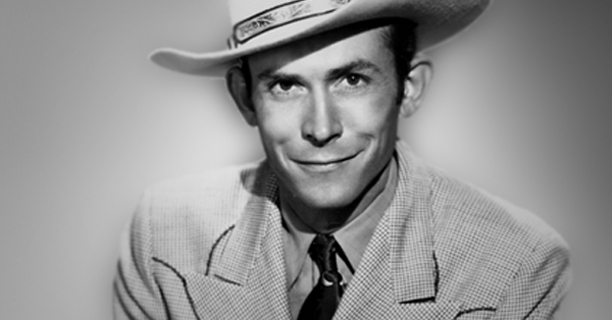I’M IN SEMI-RETIREMENT AND THIS BLOG IS WINDING DOWN. I INTEND CALLING IT A DAY IN THE NEXT FEW MONTHS. POSTINGS WILL PROBABLY BE LESS FREQUENT AND I WILL NOT UNDERTAKE ANY MAJOR NEW INVESTIGATIONS. DIOLCH YN FAWR.
♦
![]() This is a follow-up to last week’s post, ‘Corruption Bay and a tale of Cymrophobia‘. You’ll remember that we looked at how Labour Party insiders were paid to produce reports that would guide more ‘inclusive’ policy at the commissioning bodies, the Arts Council of Wales and the National Museum.
This is a follow-up to last week’s post, ‘Corruption Bay and a tale of Cymrophobia‘. You’ll remember that we looked at how Labour Party insiders were paid to produce reports that would guide more ‘inclusive’ policy at the commissioning bodies, the Arts Council of Wales and the National Museum.
♦
UPDATE
One of these submissions, from the mysterious Welsh Arts Anti-Racist Union, painted a picture of Wales as some kind of Hell on Earth where ‘creatives’ of a non-Caucasian pigmentation are brutally discriminated against.
It was reminiscent of the hysteria I’ve been writing about in connection with YesCymru. Where some of those involved in the failed Woke-Left takeover wanted us to believe that ‘women with penises’ are being butchered on Welsh streets by mobs of transphobes.
What I found revealing was that neither those suggesting rampant transphobia or a whites-only arts scene are prepared to debate. Any dialogue must start from a blind acceptance of their ‘facts’.
A few tit-bits have come to light since the previous post went out. For example, someone drew my attention to the metadata naming authors for the three reports.
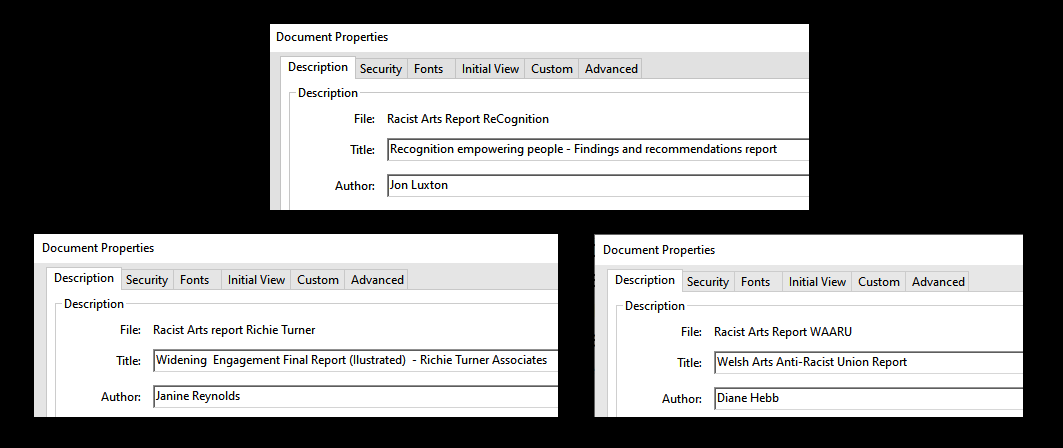
The report from Labour insiders Lu Thomas and Jon Luxton named Luxton as the author. But the other two reports listed Arts Council employees as authors. Which might at first sight seem a bit odd, though there could be a simple explanation.
Such as the reports being submitted in MS Word or some other format and the Arts Council converting them to PDF.
If that is not the explanation, then what is?
Despite the ‘authorship’, there is no real issue with the Richie Turner Associates’ report because the contributors are named in the report.
It’s the third report, from the Welsh Arts Anti-Racist Union, that’s causing concern. Because no individual or contributor is named anywhere.
Anyway, in the hope of helping me make sense of the bigger picture, a few people made suggestions. Pointed me in certain directions. So off I went.
◊
NATURE OF THE BEAST
It’s fair to say that Amgueddfa Cymru was almost a ‘passenger’ in this exercise, so I’m ruling them out to focus on The Arts Council of Wales.
The current Chair is Phil George, who I speculated was a Labour Party supporter. His immediate predecessor in the post, from 2007 – 2016, was David Burton Smith, whose political leanings have never been in doubt.
For Dai Smith – father of unsuccessful challenger to Jeremy Corbyn, Owen Smith – is another creature of the left. One of those historians who, like Neil Kinnock, believes Wales isn’t worthy of study until the Industrial Revolution and the creation of a proletariat.
Smith worked for the BBC in Cardiff, from 1994, as, ‘Head of Broadcast (English Language). He was responsible for commissioning programmes on the arts and in drama and has also presented award-winning documentaries on the people and culture of south Wales’.
Through a socialist prism, of course.
An interesting insight into colonial Wales, this. For while the Labour Party rails against Tory cronyism, Old Boy networks and the rest, the Buttybond practises something very similar in Wales.
And the Tories are more than happy to let them do it. I’ll explain why a bit later.
Phil George has a long history with The National Theatre of Wales (NTW). In fact, he was one of the founding directors on September 9, 2008. He seems to have left NTW in March 2016, around the time he was appointed Chair of the Arts Council.
I’m told the National Theatre of Wales was always well favoured in Cardiff. One source reports: ‘”BBC Wales” used and uses every opportunity to promote this company. Hardly any arts documentaries are done but in its formative years, 2010, it commissioned a 30 minute advertorial dressed up as a documentary on a National Theatre production’.
It was thanks to Phil George and NTW that Abdul Shayek of London got his foot in the Welsh public funding door. For Shayek’s Linkedin page tells us that from April 2011 until April 2013 he was a Creative Associate with NTW.
Shayek then branched out to form FIO, a BAME theatre group. Though apparently reliant on funding from the Welsh public purse this didn’t stop FIO taking plays to India. And Shayek ‘representing’ FIO at symposia and the like in Sri Lanka and Australia.
Nice work if you can get it! And especially if someone else is paying.
Another source tells me FIO got some £400,000 in funding over 3 or 4 years. (It might have been more.) Which pays for quite a few trips to Oz and old Serendip.
Going back to Shayek’s Linkedin bio we see that he left FIO in August 2020 to join Tara Theatre. No, this has nothing to do with halls and High Kings, it’s yet another ‘ethnically diverse’ theatre group. This time in London.
I’m not sure of the reasons for Shayek’s departure, or where this leaves his creation, FIO. The website suggests it’s still going, and the Charity Commission entry implies he’s still involved.

Whatever the relationship between Abdul Shayek and FIO he still appears to be involved with the arts scene in Wales. And pissing off quite a few people with his involvement in the Wales Culture and Race Taskforce (WCRT).
Which was set up in June 2020 to, ‘challenge the lack of diversity within the arts in Wales and demand systemic change’.
I’m not sure if this was Abdul Shayek’s brainchild or if he just got involved somehow. Certainly, his creation FIO was holding the money donated to WCRT by other arts groups. Said to be £20,000.
You’ll get a flavour of the dispute from the Critically Speaking blog of Jafar Iqbal. (A supporter of Leyton Orient football club.) In particular, read the lengthy comment from ‘pledging organisations’.
If you want to know more about the role envisaged for the Wales Culture and Race Taskforce then you should read this document prepared for the ‘Welsh Government’.
Strangely, in just 452 words this document manages to use the term ‘white-led’ three times. In the Welsh Arts Anti-Racist Union ‘report’ we encounter the phrase ‘white-led’ 10 times.
When checking the metadata for the document I’ve just linked to, I found the author named as Letty Clarke. So obviously, I wondered who she might be.
You will not be surprised to learn that Letty is also from England, but since January 2020 she has been Curator of Public Programmes at Artes Mundi Prize Ltd. From the Artes Mundi website we learn:
‘Artes Mundi Prize Ltd is a registered non-profit charity that annually relies on support from individuals, corporations, sponsors, trusts and foundations to fund the costs of all our programmes, alongside our core public revenue from Arts Council of Wales and Cardiff City Council’.
The name may sound like a character from a forgotten novel set in 19th century New England, but Letty is of the here and now. And, unfortunately, the ‘here’ is Wales.
Letty Clarke’s Linkedin profile makes it clear that she supports Black Lives Matter, and her Twitter account provides a few gems.
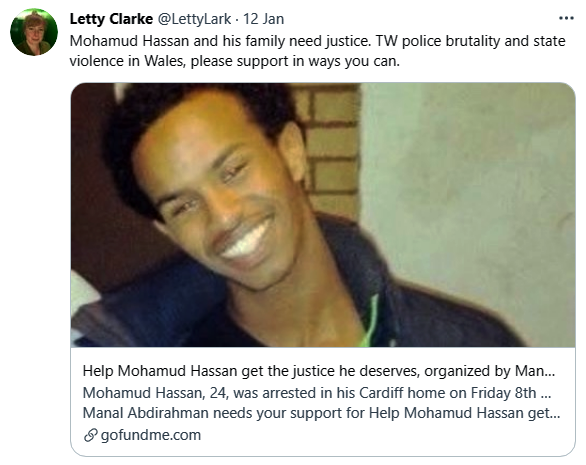
As many of you will know, investigations are continuing into the death of Mohamud Mohammed Hassan, who died some hours after leaving police custody. But Letty Clarke, after being in Wales for a short time, has already made her mind up.
For according to her Hassan was a victim of ‘police brutality’ and ‘state violence in Wales’. What the hell does she mean by ‘state violence’? There is no Welsh state!
Let me explain the relationship to you, Letty . . . Your country robs my country and by way of compensation doles out money to those buffoons down Corruption Bay, who in turn distribute far too much of that cash to people like you and your friends.
Which means that, one way and another, most Welsh people get screwed twice over.
Up to now in this painful trawl through the ‘Welsh’ arts scene I don’t think we’ve met anyone who is actually Welsh, apart from a few cocks atop the dung heap.
Let’s see if we have any more luck in the next section.
◊
THE SEARCH CONTINUES FOR THE WELSH ARTS ANTI-RACIST UNION
In December 2019 the Wales Audit Office produced a snappily-entitled report, ‘Well-being of Future Generations Increasing Participation in Areas with Under-developed Reach of the Arts – Arts Council of Wales’. You can read it here.

The Introduction says: ‘This document has been prepared for the internal use of the Arts Council of Wales’. Reminding us that this is an example of the additional public money wasted since the implementation of the Well-being of Future Generations (Wales) Act 2015, and the creation of the post of Future Generations Commissioner, with of course, a whole new department.
The job of Commissioner was given to Labour time-server Sophie Howe. She had previously worked under Alun Michael, the former Labour MP and now Police and Crime Commissioner for South Wales.
Under ‘Contents’ we read: ‘In its efforts to increase participation, inclusion and engagement in areas with under-developed reach of the arts, the Arts Council of Wales (Arts Council) is demonstrating commitment to the sustainable development principle but it recognises the need to further embed the five ways of working.’
Clearly, the Audit Office looked into inclusion in the arts, and made recommendations to the Arts Council. So why, just six months later, did the ACW spaff another £50,000 (minimum) doing what looks like exactly the same thing?
(Note that the Sell2Wales notice I link to is from June 2020. Which is when the Wales Culture and Race Taskforce was set up.)
This duplication produced the three reports dealt with in the previous post, including the submission from the mysterious Welsh Arts Anti-Racist Union.
This digression takes us nowhere nearer identifying the person or persons behind the Welsh Arts Anti-Racist Union. In fact, it’s difficult to get any handle on the WAARU.
One mention I did find was on what I assume to be a podcast. It seems to be called Mostyn, or Lumin, the latter described as, ‘an artist-run radio and publisher led by Sadia Pineda Hameed and Beau W Beakhouse’.
If you scroll down to the bios of others involved, you’ll see this for the Welsh Arts Anti-Racist Union. But again, no name.

I’d like to be able to tell you that Hameed is from Froncysyllte and Beakhouse from Llangyfelach, but alas . . .
Beau tells us: ‘I’m originally from Bournemouth but moved around . . . I come from a nature & craft background . . . My parents were self-employed gardeners, who then went into woodcraft . . . Eventually, I managed to study English Literature at Cardiff University’.
Hameed: ‘I’m from London. I also came to Cardiff to study English Literature at uni and decided to stay ‒ in part because I didn’t really have the money to pursue the arts back in London, but also because I really liked how open the arts scene in Wales is.’
Yes indeedy; the ‘arts scene’ in Wales is open to just about anybody . . . artistic talent is unnecessary, and knowledge of Wales undesirable.
Here’s an example of Beakhouse’s poetry from 2017.
Don’t give up the day job, Beau. Whatever it is.
That we are no nearer fingering who wrote the Welsh Arts Anti-Racist Union report is understandable, given its reception. But the Arts Council of Wales must know because the WAARU was paid well to insult us.
Which is why I have submitted a Freedom of Information request to the ACW.
But over and above that, this situation of strangers being paid to insult us could only happen in the peculiar circumstances of devolution, which sees politicians and others who superficially oppose each other agree when it comes to Wales, and the Welsh.
∼
UPDATE: Since publishing this piece I have received feedback, including someone drawing my attention to The Future Generations Report 2020. On page 355 we read what you see in the panel:
First, ‘learning Welsh on the job’ sounds like a good idea, until you realise it’s often a ruse to give jobs to people most of whom will do no more than go through the motions of taking a few Welsh lessons.
Mark James, former chief executive of Carmarthenshire County Council, would be a great example of this scam in practise.
Second, The Future Generations Commissioner in her 2020 report is quoting Race Alliance Wales (RAW), a body formally launched on December 19, 2019. How the hell did a newly-constituted body become so influential so quickly?
The answer is that those behind RAW are based almost exclusively in Cardiff and well connected in Corruption Bay.
While organisations elsewhere in Wales, established for far longer, representing many more people, but outside the Bay Bubble, are ignored.
This is not healthy; this is not democratic; this should not be the Wales any of us wants to see.
But it’s the Wales we live in.
∼
FURTHER UPDATE: Someone else has been in touch with an intriguing suggestion. Which is, that when an anonymous Twitter account is launched the author is often to be found among the early followers.
In the case of the Welsh Arts Anti-Racist Union Twitter account the first ten followers can be found here. (Read from the bottom up.) There are quite a few names there that appear in this article.
◊
THE BIT AT THE END WHERE COLOMBO PUFFS ON HIS CIGAR AND . . .
Picking up again on the shared motivations, what I’m hinting at is that these otherwise squabbling interests agree that Wales must be carefully ‘managed’.
Which is why what passes for entertainment on television and elsewhere is banal and superficial. Welsh politics, social issues, and other specifically Welsh matters (when dealt with in English) are often quarantined in programmes broadcast at awkward times . . . which results in hardly anyone watching them.
The same applies more widely, in the fields so copiously manured by the Arts Council. For example, there’s not a hope in Hell of Wales having its own Abbey Theatre.
We are at a stage now where if two plays are in competition for funding, one about Welsh villages being destroyed by excessive tourism, the other about the absence of obstetric facilities for low caste birthing persons in Tamil Nadu, then you can predict with certainty which will enjoy an opening night.
Researching this piece I stumbled on an hour-long lecture by former Arts Council Chair Dai Smith, built around writer Raymond Williams. Smith is speaking at a ‘Cultural Democracy Workshop’ in November 2020.
This was of course delivered at a time when the three reports commissioned by the Arts Council were being prepared. Yes, it was all happening around that time.
Smith makes the point that in the 1950s, ’60s and ’70s, when Williams was at the height of his intellectual and creative powers, his writing was framed by what he saw as a class struggle. But things have moved on.
(Interestingly, a piece on Williams appeared in UnHerd yesterday.)
Most importantly, the political left in Europe and North America has lost the working class. Which is why Marxism is now promoted through race, environmentalism and gender. And the harder the left pushes these the more it alienates the working class.
No one living just thirty years ago could have envisioned the crazy situation we have reached today. And few political activists of the left under the age of 40 can believe that their ideological predecessors idolised those they regard as stupid, racist, transphobic, climate denying Brexiteers.
The sons and grandsons of Marxist miners are fascist white van men!
A hazy understanding of Marxism re-interpreted by Black Lives Matter almost certainly lies behind the report submitted by the Welsh Arts Anti-Racist Union. It also explains the report’s acceptance by the Arts Council.
But why would the Old Etonians in Westminster and their civil servant alumni of lesser schools want to push such drivel? The answer is that they share with the Woke-Left establishment in Corruption Bay a desired outcome.
This explains the funding and other encouragement for people from around the world to come here, take funding that should go to Welsh arts, and then call us racist.
London likes the ‘The Welsh are racist’ message because it explains why we oppose holiday homes, and resent being colonised. (It’s why the Telegraph used the WAARU report.) Corruption Bay modifies it to read, ‘Nationalism is racist’ because that can slander those suggesting there is a better way for Cymru than devolution’s cronyism and exploitation.
Together they tell us why the ‘Welsh’ arts scene today is a revolting mess of talentless dreamers and grant-grabbing shysters. Overwhelmingly alien; with some of those involved positively racist in their attitudes towards us.
Modern Wales in microcosm.
♦ end ♦




